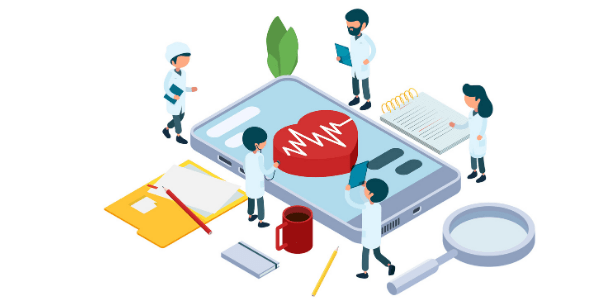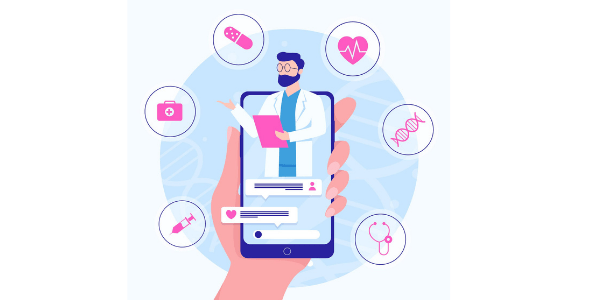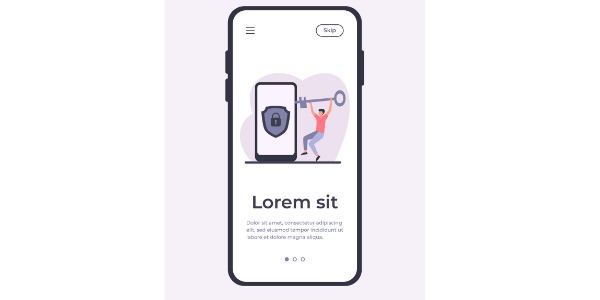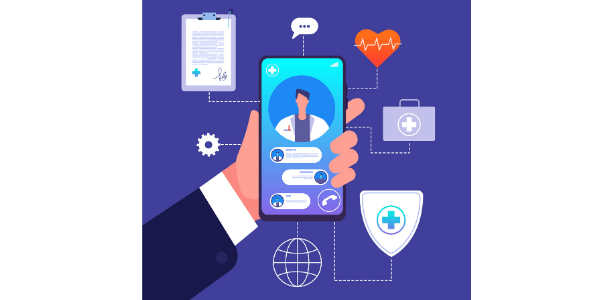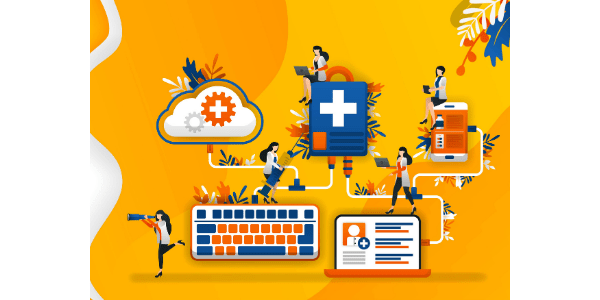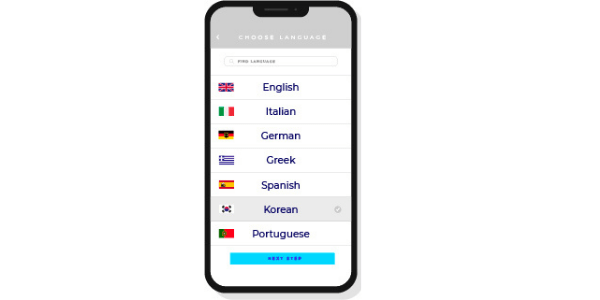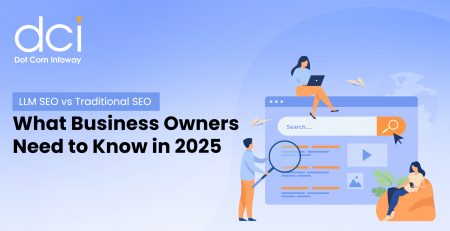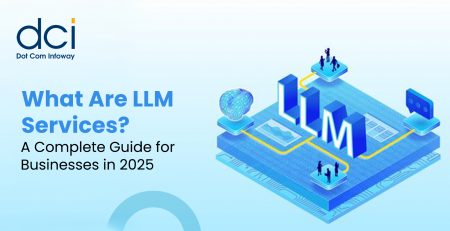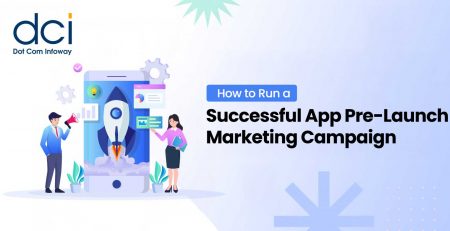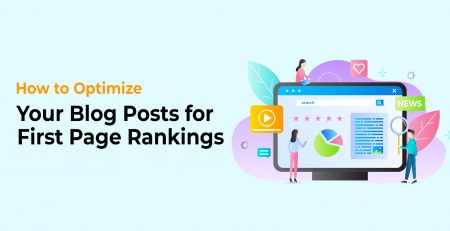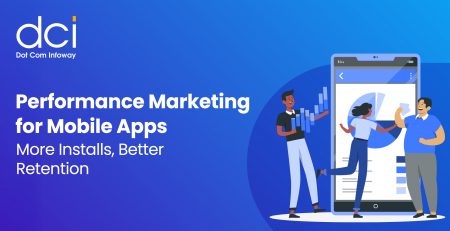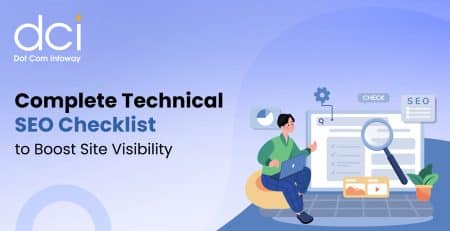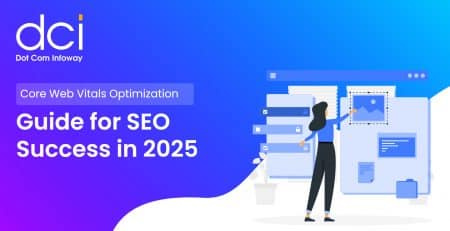Healthcare App Development Guide: Top 7 Innovative Ideas and Industry Insights
Many features of healthcare apps only ever look good on paper. They might appear like they can address the next big issue in the healthcare industry and serve as that innovative catalyst for taking it to the next level. In a perfect world, that might be the case, but the reality is that only a few apps are worthy of being called innovations that can be game-changers that usher in a new norm. This is why healthcare mobile app development requires brilliant and creative developers — specifically those who can think outside the box.
Despite the relatively robust growth of the said industry, healthcare professionals, who are deemed as the best recipients of technological advancements made by apps, ironically can’t make the most of what is available at present. Why? They either end up with “solutions” that are difficult to integrate or whose flaws reveal themselves once they have been applied.
Despite the relatively robust growth of the said industry, healthcare professionals, who are deemed as the best recipients of what healthcare app developers have to offer, ironically can’t make the most of what is available at present. Why? They either end up with “solutions” that are difficult to integrate or whose flaws reveal themselves once they have been applied.
Such a scenario underscores the need to think of genuinely innovative healthcare mobile app ideas that are more results-driven — those that tick the fundamental boxes of better medical service and satisfactory patient experience. And these are exactly what we shall be discussing here: Healthcare mobile app ideas that will benefit patients and doctors. On the whole, they are based on the healthcare mobile apps trends at present. This way, we hope you can gain some inspiration or, at least, know where to start.
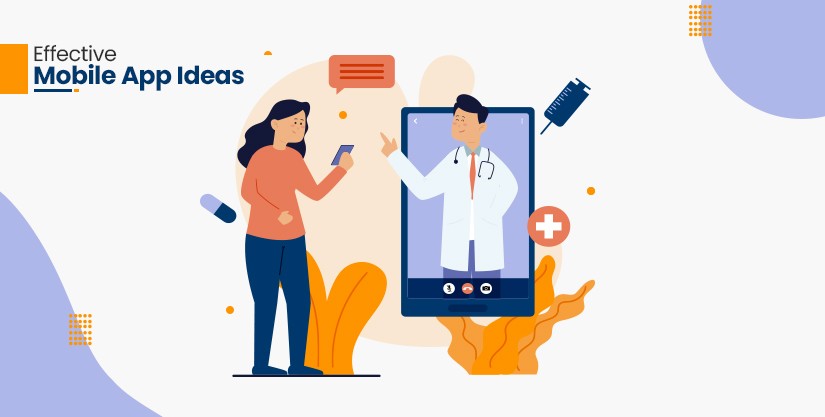
Medical App Ideas Beneficial to Patients
These are apps centered on improving patient experience, therapeutic outcome, and even accessibility to medical assistance wherever they may be. Just read through our list to find out why these app ideas are not only viable but very beneficial to the individuals they were specifically designed for.
1. Consultation Apps
On-demand apps have been all the craze since the pandemic began to spread, and the healthcare consultation app serves as the premier representative of the healthcare industry in this app category. Consultation apps bridge patients to their doctors — this statement alone already carries a lot of weight.
After all, there is no shortage of patients who would pay an arm and a leg just to be able to acquire professional consultation on time. However hyperbolic it sounds, it’s true to a certain degree, as it could mean the difference between life and death for a lot of patients.
Consultation apps also allow patients to schedule appointments without having to invest too much time and effort into it. Without a doubt, this is an advantage that most — if not all — patients would more than welcome.
2. Self-Checker Apps
Patients also don’t want to have to frequently rely on others just to perform their routine health diagnostic tests. Those who suffer from diabetes and high blood pressure can surely benefit a lot from this, as well as those who have to have their urine checked, which Biosense’s uChek has already delivered.
Another good example is Symptomate, which also provides a COVID-19 symptom checker. As long as a healthcare mobile app development company can design a medical app that can deliver a pressing need, it’s bound to be utilized before long.
3. Health Reminder and Medical Records Apps
Seniors dealing with numerous debilitating diseases often need to be reminded about their medicine intake or checkup. This is why reminder apps will always be useful to a lot of elderly people and people who have health issues that take a toll on their cognitive function. And since it primarily relays information, you can even design the app in such a way that it will share useful health information and guidelines to its users.
As for medical records, we can’t deny that being able to keep track of medical data is not only a boon for the patient but the caregiver as well. Plan a medical records app that will make it convenient for patients to not only keep track of their health but to make it less of a hassle as well to share the data with their doctors.
4. Pharmacy Delivery Apps
Another great idea for an on-demand app is one that focuses on delivering medicine to patients who could not buy them in-person. The new normal made it nothing short of necessary for such apps to take the forefront. Just think of high-risk individuals who can’t manage to buy their essential medicine due to their conditions or the absence of people who can help them do so.
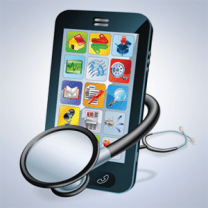
Want to Build a Unique Mobile App for Your Healthcare Industry?
Just share your requirements with us. We can help you with developing your dream app!
Medical App Ideas Helpful to Doctors
Think of these apps as another arm for doctors to use to lessen their work burden. Others can be more education-oriented to further sharpen the skills of budding doctors and other healthcare providers.
1. Health Tracking App
IoT already introduced plenty of game-changing benefits in numerous industries. It’s only right for its full potential to be harnessed in the medical industry. And there’s no better way to do so than through the creation of more sophisticated health tracking apps using IoT Development.
Wearable devices alone, which can track blood pressure, pulse, blood sugar, and other vital signs can be incorporated into health tracking apps. In this way, doctors will always be in the know of the condition of any given patient. You only need to look at apps like Lybrate and QardioCore to see how these apps can be conceived.
2. Reference and Training Apps
This can include any app that deals with educating or delivering necessary knowledge to doctors in seconds. Even the most astute and experienced doctors out there still have to rely on books and other references before making a decision or performing a procedure; otherwise, dire mistakes and consequences are only bound to arise. If your app can deliver such information without too much time and effort, then there’s no room to question how useful it can be.
Medical training apps are another app concept that deals with improving doctors’ experience and skills. And just imagine how powerful technologies like AR/VR, mixed reality, and AI can be when simulating realistic medical scenarios, especially surgeries. You can use them to your advantage in your app and give doctors a way to practice and hone their skills.
3. Medical Translation Apps
Language need not be a barrier just for patients to receive the right kind of medical assistance. Not everyone can speak or understand English — even in the United States. It’s high time for apps to be able to function as a translator so the right course of treatment can be assigned by the doctor to the patient, regardless of what language either one speaks.
What Are the Basic Elements of Healthcare Apps?
While originality is nothing short of crucial for healthcare mobile apps to stand out, there are still some fundamental features that are followed by every healthcare app developer. Think of them as a healthcare app’s bare necessities, without which they won’t be able to function as they are intended. Make a mental note of them when you are deciding to hire app developers.
1. Account registration and login interface
Naturally, your app’s main features should be easy to access, and what determines this is usually how the registration and the sign-in process is designed. There should be a balance between maintaining security and saving as much time as possible for the user. Oftentimes, one layer of account validation would suffice — although the rule of thumb is as few taps as possible to gain entry into your app.
2. A user-friendly UI/UX
We emphasized “user-friendly” here because that should pretty much be a given, considering the magnitude of most of the services that healthcare apps can render. Overcomplicating UI/UX only leads to frustration and might only force you to make amendments in no time. Of course, that only entails more unnecessary expenses. In short, aim for the best UI/UX design from the start.
3. Telemedicine capabilities
Understandably, not all the app concepts mentioned here would require telemedicine. But most of them do, so we deemed it as essential. That said, telemedicine app development is a whole different field in itself, and at the heart of it is ensuring patients won’t have a hard time communicating their issues to physicians and other healthcare professionals.
Of course, this goes both ways as doctors should also be able to easily provide invaluable advice through this medium. Once harmony exists in this regard, it won’t take long for users (both patients and doctors) to warm up to healthcare apps.
4. Security-boosting multi-factor authentication
Additionally, multi-factor authentication imparts another necessary barrier for security. Always remember that sensitive patient data should never be allowed to be compromised by hackers and other malicious entities. This solution does wonders to deter them, making it another must-have feature.
5. API integration
APIs function as the tools app developers need to hone any healthcare app’s features further. Obviously, they also ease up the entire development process, especially code-writing. Medical APIs come in various immensely helpful forms.
Some ensure the integration of medical innovation, while others ensure the safe and organized storage of medical data. Indeed, certain medical APIs are so valuable to the point that they are needed for patient treatments to succeed.
6. Collecting patient data
Nowadays, data determine patient outcomes. However, apps are also required to take responsibility for handling the data that they acquire from their users. As much as possible, they should only be collecting data centering on their services — no more, no less — to ensure transparency, user peace of mind, and better functionality.
7. Support for multiple languages
Assuming your app will have a global reach (which is usually expected from most healthcare apps), then it’s only right to cater to the lingual needs of your users. It gives the ready impression that you take into consideration the cultural and ethnic backgrounds of your users. All the better if it can readily translate certain important medical phrases, which are often the most vital information needed to be relayed by doctors to their patients.
Conclusion
Take note that these are but some of the app promotion ideas that, more or less, patients and doctors will find extremely valuable. More ideas are bound to spring up in the future, but the ones listed here have already proven their worth, so to speak. You need only to look at the apps that followed these concepts and have already taken off. Still have queries, Get Mobile App Consulting Services here.


